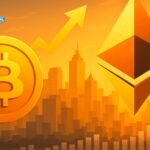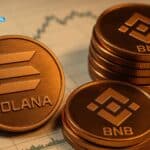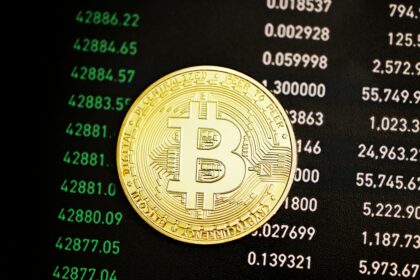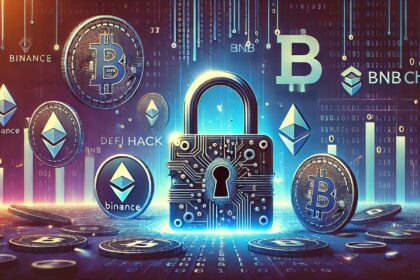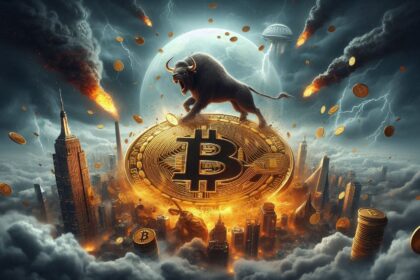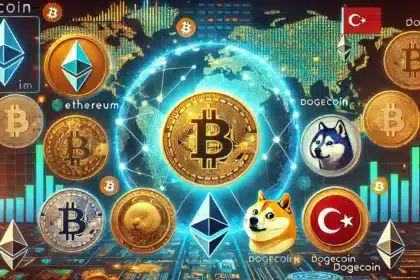Renowned financial educator and author of “Rich Dad Poor Dad,” Robert Kiyosaki, has recently intensified his critique of the U.S. dollar, labeling it a “scam” and advocating for alternative assets like Bitcoin, gold, and silver as safer havens for preserving wealth.
The U.S. Dollar Under Scrutiny
Robert Kiyosaki’s assertion stems from his belief that the U.S. dollar’s value is being systematically eroded due to excessive money printing and fiscal mismanagement. He argues that the traditional banking system, in collusion with the Federal Reserve, manipulates the currency, leading to inflation and a decrease in purchasing power.
This perspective aligns with historical concerns about fiat currencies, which are government-issued currencies not backed by a physical commodity like gold. Over time, fiat currencies can be prone to devaluation, especially when governments increase the money supply without corresponding economic growth.
Bitcoin: A Digital Safe Haven?
In contrast to fiat currencies, Bitcoin operates on a decentralized network, free from government control, with a fixed supply capped at 21 million coins. This scarcity is one of the factors that proponents argue makes Bitcoin a potential hedge against inflation and currency devaluation. Robert Kiyosaki’s endorsement of Bitcoin reflects a growing sentiment among investors seeking alternatives to traditional financial systems. However, it’s essential to note that Bitcoin’s volatility and regulatory uncertainties remain significant considerations for investors.

Gold and Silver: Time-Tested Stores of Value
Alongside Bitcoin, Robert Kiyosaki recommends investing in gold and silver. These precious metals have historically been regarded as safe-haven assets, particularly during times of economic uncertainty. Unlike fiat currencies, gold and silver have intrinsic value and have been used as a medium of exchange for centuries. Their limited supply and universal acceptance make them attractive options for those looking to diversify their portfolios and hedge against currency risk.
The Broader Implications of De-Dollarization
Robert Kiyosaki’s critique of the U.S. dollar also touches on a broader trend known as de-dollarization, where countries seek to reduce their reliance on the U.S. dollar for international trade and reserves. Factors contributing to this trend include geopolitical tensions, the desire for economic sovereignty, and the development of alternative payment systems. For instance, nations like China and Russia have been actively promoting the use of their own currencies in international trade, challenging the dollar’s dominance.

Evaluating the Risks and Rewards
While Robert Kiyosaki’s warnings resonate with those skeptical of traditional financial systems, it’s crucial to approach alternative investments with a balanced perspective. Bitcoin’s price volatility can lead to significant gains but also substantial losses. Gold and silver, while more stable, do not offer yields like dividends or interest, which can impact long-term investment growth. Diversification remains a key strategy, allowing investors to spread risk across various asset classes.
Conclusion on Robert Kiyosaki’s
Robert Kiyosaki’s characterization of the U.S. dollar as a “scam” underscores a growing distrust in traditional financial systems and fiat currencies. His advocacy for assets like Bitcoin, gold, and silver reflects a desire for alternatives that can potentially preserve wealth in the face of economic uncertainties. However, investors should conduct thorough research and consider their risk tolerance before making investment decisions in these alternative assets.
Stay tuned to The BIT Journal and keep an eye on Crypto’s updates.
FAQs
Q: Why does Robert Kiyosaki consider the U.S. dollar a “scam”?
A: Kiyosaki believes that excessive money printing and fiscal mismanagement by the government and Federal Reserve lead to inflation, decreasing the dollar’s purchasing power.
Q: What makes Bitcoin a potential safe haven?
A: Bitcoin’s decentralized nature and fixed supply are seen by some investors as hedges against inflation and currency devaluation.
Q: Are gold and silver good investments during economic uncertainty?
A: Historically, gold and silver have been considered safe-haven assets, retaining value during economic downturns.
Q: What is de-dollarization?
A: De-dollarization refers to efforts by countries to reduce reliance on the U.S. dollar in international trade and finance.
Q: What are the risks of investing in Bitcoin?
A: Bitcoin is highly volatile and subject to regulatory changes, making it a risky investment.
Glossary
Fiat Currency: Government-issued currency not backed by a physical commodity.
Decentralized: A system not controlled by a central authority.
Inflation: The rate at which the general level of prices for goods and services is rising.
Safe-Haven Asset: An investment expected to retain or increase in value during market turbulence.
De-Dollarization: The process of reducing reliance on the U.S. dollar in international trade and finance.

















